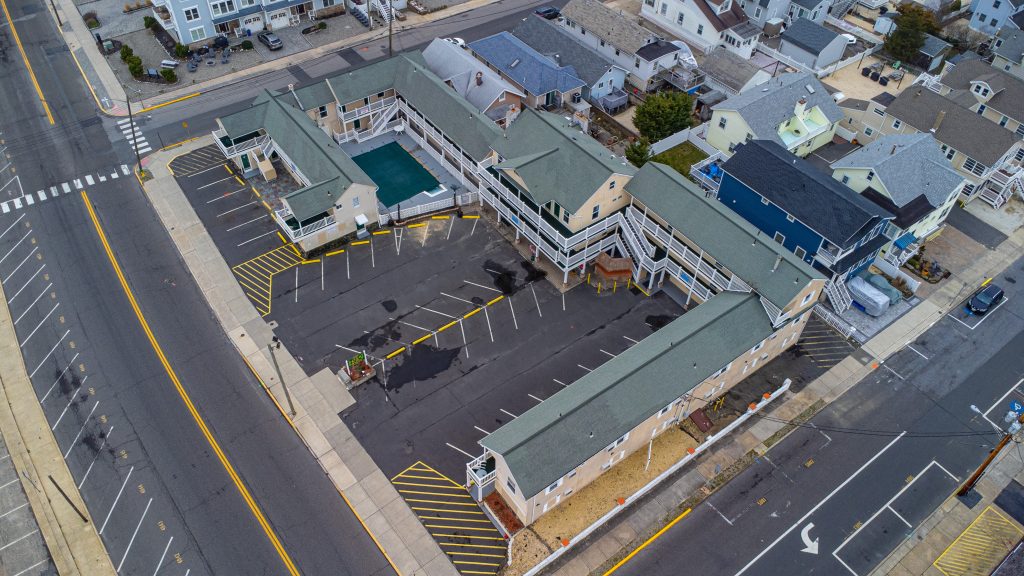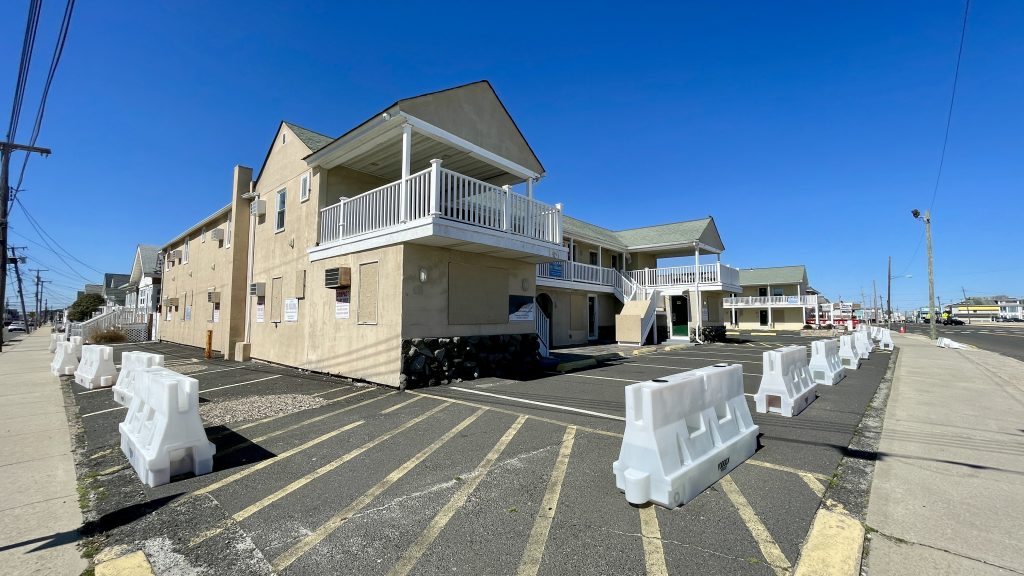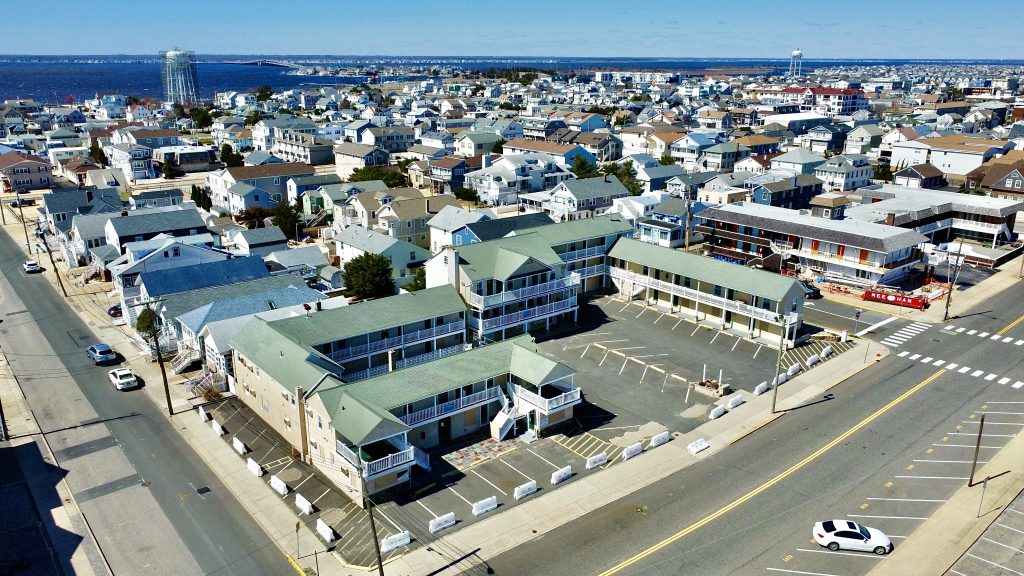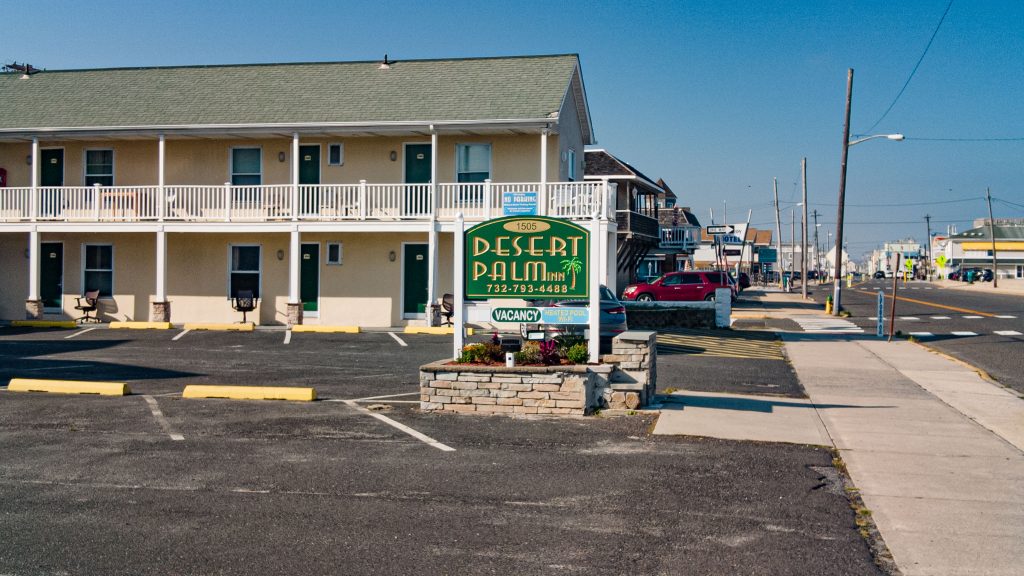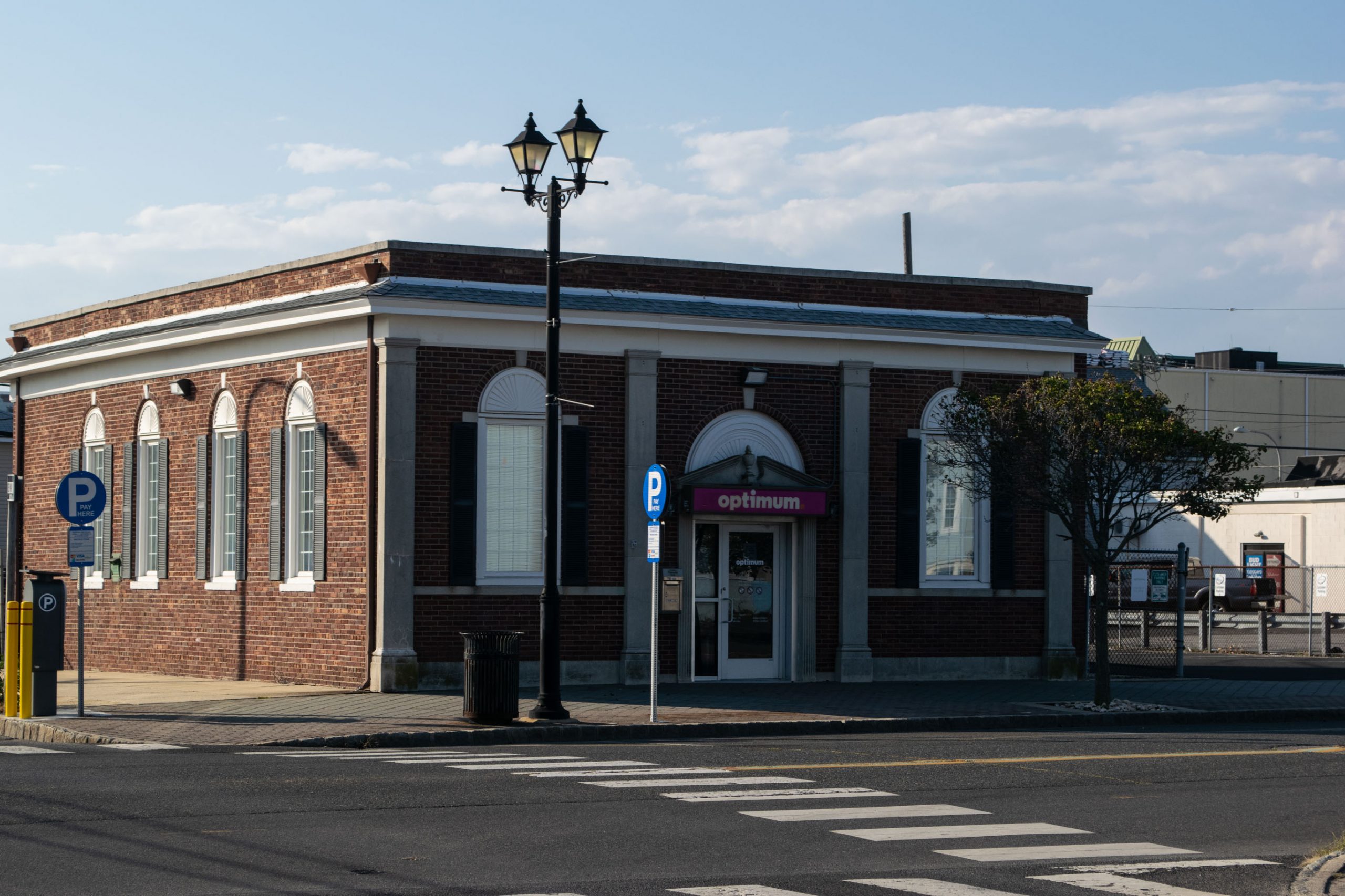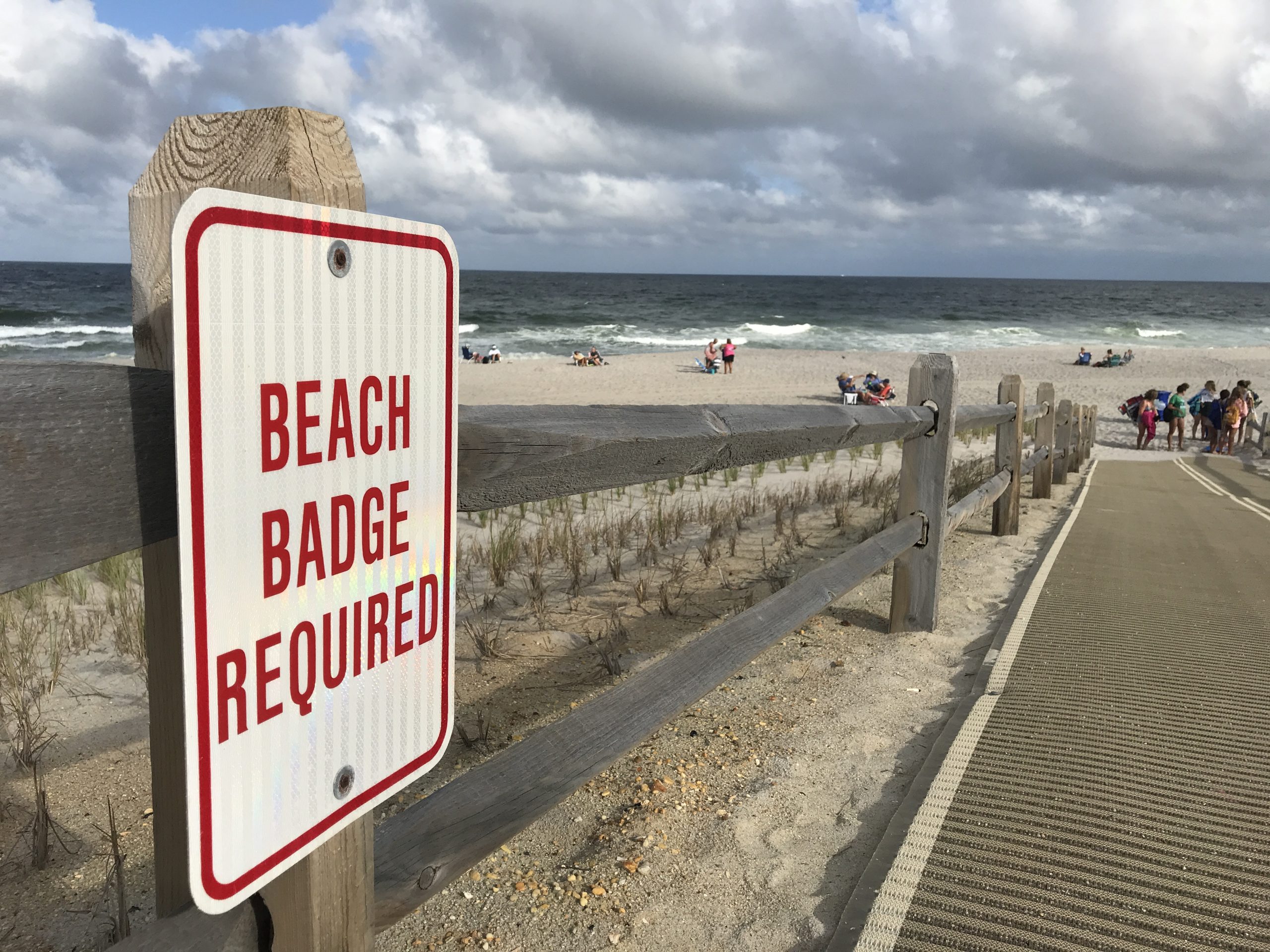The long-planned demolition of the Desert Palm Inn in Seaside Park remains stayed by an appeals court as its former owner continues to challenge the borough’s condemnation of the property, this time having petitioned the New Jersey Supreme Court to take up the case.
The motel was owned by Shree Jyoti LLC, a company owned by Ramesh Kania, a physician based in Livingston. Since the borough adopted a condemnation ordinance in 2022, Kania has been seeking to have the eminent domain taking vacated and dismissed. Thus far, every court in which the matter has been litigated has ruled in favor of Seaside Park, however the demolition of the building remains stayed by the Superior Court Appellate Division while the petition pends before the Supreme Court.
The building was condemned based on a study conducted on the property that found more than 800 police responses over five years, exposed wiring, sagging floors and mold, among numerous other structural deficiencies and safety violations. Kania opposed the condemnation to no avail. In court, his attorneys argued that Seaside Park took the property for the purposes of a public use, but never articulated the public use in the form of an ordinance. Trial court as well as appellate division judges have rejected that argument, citing case law which provides municipal governments significant latitude in identifying a public purpose and its appropriateness.
Seaside Park officials have openly stated that they are seeking to build a well for the borough’s water utility at the property to replace an older well in another part of town. The property is also being eyed as a potential site for a “green” parking area for which the borough has been awarded grant funding. The parking lot would be covered by solar canopies and include ample electric vehicle charging stalls.
The appellate division, in a decision published in May, ruled there was no requirement for the borough to adopt an actual ordinance effectuating the public purpose of the eminent domain taking.
“We have carefully reviewed Shree’s arguments in light of the authorizing statute and the relevant legal precedents and find no basis on which to reverse the trial court’s order,” the panel wrote, adding that the state’s eminent domain law was not violated.
The law “does not require that the ordinance authorizing the condemnation of property specify the public use and purpose to which the municipality intends to put the property,” the decision said.
The opinion also stated: “Nothing in the record suggests that Shree was unable to challenge the validity of the public use and purpose on which the borough relies to exercise eminent domain. Shree was put on notice in the second complaint that the borough intends to use the property for public parking including electric vehicle charging infrastructure. It could have sought to dismiss the amended complaint by challenging the validity of public parking including electric vehicle charging infrastructure as a valid public use and purpose to condemn the property. It did not do so.”
The opinion went on to state that Shree made “no effort” to challenge the public purpose, and the owner did not appear at a meeting where the issue was raised despite having been notified of the time and date, and location.
“We see no impropriety in the borough identifying the public use and purpose to which it intended to put the property in the second complaint,” the panel ruled. “To the contrary, the second complaint, which sought judicial approval of the borough’s exercise of eminent domain, appropriately explained the basis for its request for relief.”
Following the publication of the ruling, the appellate panel granted the former owner 20 days to appeal the decision to the Supreme Court as a last resort. In the case this were to occur, a previous stay on the demolition of the property – granted in April 2024 – would remain in place. The owner did, indeed, file a petition to have the case taken up by the state’s highest court, forcing the stay to remain in place.
The Supreme Court grants certification of only a limited number of cases, however it has not yet accepted or rejected the Desert Palm case.
“They’ve petitioned the Supreme Court of New Jersey,” said Mayor John Peterson. “They don’t have to take it, but they have to make a decision one way or the other.”
There is no timeline, however, that requires the Supreme Court to establish a hard deadline to grant certification or not. If certification is not granted, the appellate division’s decision would serve as the final adjudication of the matter and demolition of the motel could get underway.
~
Read the Decision:

Advertisement
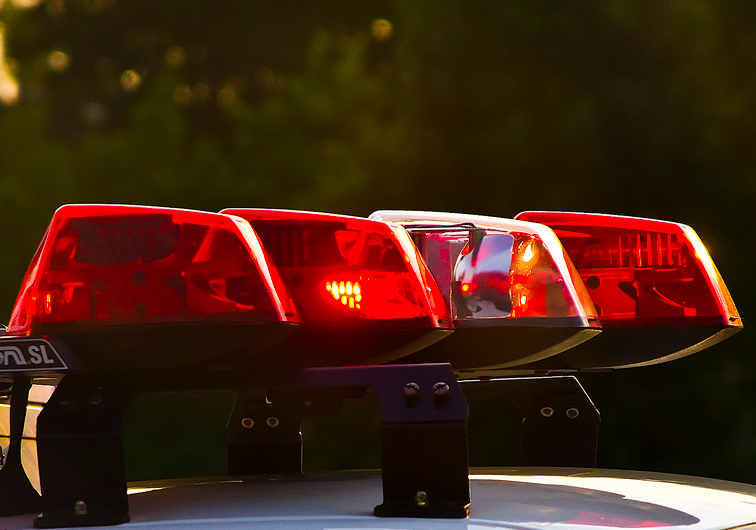
Police, Fire & Courts
Cops: Juvenile Arrested After 118mph Joy Ride in Seaside Heights, Toms River Kills 2

Seaside Heights & Seaside Park
Seaside Heights Mourns Passing of Boardwalk Legend, Still Working Into His 90s

